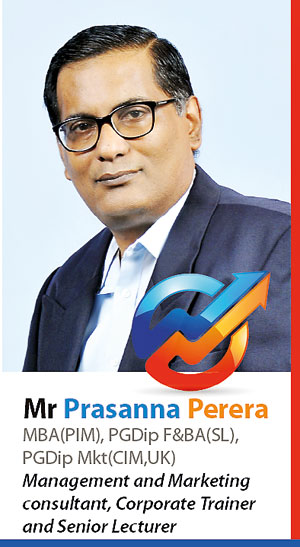CAREER ADVANCEMENT IN COMPETITIVE INDUSTRIES
View(s):Introduction
Advancing your career in highly competitive industries is both a challenging and rewarding endeavor. In today’s ever-evolving job market, standing out among a sea of talented professionals requires a strategic approach and a relentless commitment to personal and professional growth. To thrive in such demanding environments, it is essential to continually enhance your skill set, build a strong professional network, and cultivate a robust personal brand. Staying updated with industry trends and technological advancements is not just beneficial but necessary for maintaining a competitive edge.
Continual Learning And Skill Enhancement – In competitive industries, continual learning and skill enhancement are crucial. Engaging in ongoing education—whether through enrolling in courses, attending workshops, or obtaining industry-recognised certifications—ensures that you remain relevant and demonstrate a commitment to personal and professional growth. This proactive approach can set you apart from peers who may become complacent in their current roles. Embracing lifelong learning helps you adapt to new challenges, making you more resilient in the face of industry changes.
Goal Setting – Clear, achievable career goals are vital for progression. Having a well-defined vision of where you want to go in your career allows you to develop a strategic plan to reach your objectives. Break down your long-term career aspirations into short-term, manageable goals, and regularly review and adjust them to ensure they remain aligned with your evolving career aspirations and the shifting landscape of your industry. This disciplined approach not only keeps you focused but also provides a sense of direction and purpose, which is essential for sustained career growth.
Building A Portfolio – Creating a comprehensive portfolio that showcases your projects, achievements, and skills can be a powerful tool during job interviews and performance reviews. Include case studies, project summaries, testimonials, and any other evidence of your professional accomplishments. A well-organised portfolio demonstrates your capabilities and provides concrete examples of your work, making it easier for potential employers to see your value. A strong portfolio is not just a reflection of your past achievements; it is a strategic asset that can significantly influence your career trajectory.
Networking – Building a strong professional network is indispensable in competitive industries. Networking provides access to new opportunities, insights into industry trends, and potential collaborations. Engage with professional organisations, take part in online forums, and attend industry conferences. LinkedIn, for instance, is an excellent platform to connect with industry leaders, join relevant groups, and engage in meaningful discussions. Networking can often lead to mentorship opportunities, job referrals, and collaborations that can propel your career forward. The relationships you build through networking can serve as a foundation for future career advancements.
Technological Proficiency – Staying updated with the latest technological advancements in your industry can enhance your efficiency and competitiveness. Proficiency in relevant software, tools, and platforms can make you more effective in your role and open up new opportunities. Invest time in learning new technologies and staying informed about industry trends to maintain a competitive edge. Technological proficiency is not just about understanding the latest tools; it’s about leveraging them to improve your performance and deliver value to your organisation.
Soft Skills Development – While technical skills are crucial, soft skills such as communication, leadership, and teamwork are equally important in competitive industries. Employers often look for individuals who can effectively lead teams, manage projects, and communicate complex ideas. Invest in developing these skills through courses, workshops, and real-life practice. Strong soft skills enhance your ability to collaborate with colleagues, manage conflicts, and lead projects, making you a more attractive candidate for higher-level positions. These interpersonal skills are often the differentiating factor that elevates professionals to leadership roles.

Personal Branding – Your personal brand is how you present yourself to the world, and it is often the first thing potential employers and industry peers notice. Develop a strong online presence by creating a professional website, maintaining an active LinkedIn profile, and sharing industry-related content. Writing articles, participating in webinars, and speaking at conferences can also help establish you as a thought leader in your field. A strong personal brand significantly enhances your visibility and credibility, opening doors to new opportunities. In competitive industries, a well-crafted personal brand can be the key to distinguishing yourself from others.
Cross-functional Experience – Gaining experience in different areas of your industry can make you more versatile and knowledgeable. This cross-functional experience can include working on projects with different departments, taking on roles outside your primary area of expertise, or participating in job rotations. Being well-rounded and having a broad understanding of your industry can increase your value to employers and open up new career paths. Employer’s value professionals who bring a comprehensive perspective to their roles and cross-functional experience equips you with the skills to adapt to various challenges.
Strategic Job Moves – Sometimes, advancing your career means moving to a new company or even a different industry. Be strategic about job changes, ensuring they align with your long-term career goals. Consider opportunities that offer growth potential, new challenges, and a better fit with your skills and interests. Changing jobs can be a way to gain new experiences, expand your network, and speed up your career progression. However, it is important to evaluate each move carefully to ensure it supports your overarching career strategy.
Mentorship And Guidance – Seeking mentorship can be a game-changer in competitive industries. A mentor can provide invaluable advice, help you navigate complex career decisions, and offer insights that might not be immediately apparent. Whether through formal mentorship programmes or informal relationships, having a mentor who understands the intricacies of your industry can significantly impact your career advancement. Mentorship is a reciprocal relationship that not only benefits you but also provides an opportunity to give back by mentoring others as you advance in your career.
Work-Life Balance – In the pursuit of career advancement, maintaining a healthy work-life balance is often overlooked. However, achieving this balance is crucial for long-term success and personal well-being. Burnout can be a significant barrier to career progression, especially in competitive industries where the pressure to perform is high. By prioritising work-life balance, you ensure sustained productivity and prevent the negative effects of overwork. Employers increasingly recognise the importance of this balance, making it a key factor in achieving and maintaining career success.
Conclusion
Advancing your career in competitive industries demands a multifaceted approach that includes continuous learning, strategic networking, and the development of both technical and soft skills. By actively seeking opportunities for professional development, engaging with industry communities, and building a strong personal brand, you can significantly enhance your visibility and value in the marketplace. Whether you are looking to climb the corporate ladder or pivot to a new industry, a proactive and strategic approach to career advancement will position you for success.
- PRASANNA PERERA, MARKETING AND MANAGEMENT
HitAd.lk is the best and biggest mobile phone market in Sri Lanka, and we guarantee you will find what you need here from our extensive listing of mobile phones for sale in Sri Lanka. Whether it’s a budget-priced smartphone for communication, or higher end features with advanced connectivity, there are many different options from which to choose from on our site!


